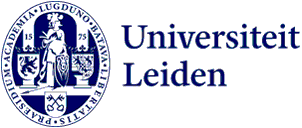
ERC Consolidator Grants for Leiden researchers
Five Leiden researchers have been awarded a Consolidator Grant by the European Research Council (ERC). This grant of up to two million euros will enable them to continue and expand their scientific research.
The ERC Consolidator Grant is awarded to promising researchers of any age and nationality with between seven and twelve years of post-doctoral experience. They can use the grant of up to two million euros to fund a team of co-researchers and support staff over a five-year period.
The five Leiden Consolidator Grants go to:
Milan Allan – Faculty of Science
Physicist Milan Allan has already done a lot of successful research into superconductivity: an almost magical property of specific materials that enables them to conduct electricity without losing energy when they are cooled below a certain temperature. Understanding superconductivity has been a quest in physics since its discovery in 1911. Allan and his group are building instruments to measure the properties of superconducting materials. Until last year, it was thought that superconductivity occurs when electrons pair up. But last year Allan’s instruments showed that paired electrons also occur above the temperature at which superconductivity occurs. Allan will use the ERC grant to build a special microscope that can observe paired electrons above this temperature.
Kevin Köhler – Faculty of Social and Behavioural Sciences
Assistant professor Kevin Köhler will research the political implications of whether political elites accommodate or exclude their rivals. While accommodation and compromise are conducive to democracy, conflict and exclusion are linked to different forms of autocratic rule. But why do political elites accommodate or exclude their rivals in the first place? MENA-PERC will try to answer this question. Köhler and his team will develop a theoretical model linking elite behaviour to specific forms of elite competition. They will test this argument against original individual-level data on 15,000 political elites in Egypt, Tunisia and Turkey over more than a century.
Martijn Luijsterburg – Leiden University Medical Center
Martijn Luijsterburg will research how damaged DNA can be repaired so that it can be read by protein machines. Protein machines read the genes in our DNA, and this is an essential process for our cells. If the DNA is damaged, the protein machine becomes physically stuck. For the machine to continue, the DNA must be repaired. Little is known yet about how this works exactly. Luijsterburg will use the ERC to study the entire genome and answer questions such as: How are jammed protein machines recognised? The team will also switch off all 20,000 genes one by one to find out which proteins are involved in DNA repair.
Daniël Pijnappels – Leiden University Medical Center
Daniël Pijnappels, head of Experimental Cardiology at LUMC, is convinced that one day the human heart will be able to stop its own rhythmic irregularities. The heart generates its own electricity, which causes it to contract and pump blood around the body. This bioelectricity forms the basis of the therapy that Pijnappels is researching. His idea is to make an implant that detects and resolves arrhythmias by activating an LED light. This would cause light-sensitive proteins that have been delivered into the heart muscle cells with gene therapy to generate an electronic current that restores the heart rhythm. Pijnappels will use the ERC grant to investigate what is needed to make the implant suitable for humans, for example by testing it on a 3D model of a human atrium.
Marijn van Putten – Faculty of Humanities
Marijn van Putten, a researcher at the Leiden University Centre for Linguistics, is researching the recitation of the Quran in the early Islamic period. The standard text of the Quran, codified around the year 650, was written in a highly ambiguous script. The text could therefore be interpreted in many different ways. In the seventh and eighth centuries, famous reciters emerged who taught their own specific interpretation of the ambiguous text. Our earliest description of these traditions stems from the tenth century and provides only second-hand information. The QurCan project will turn to the hundreds of Quranic manuscripts from before the tenth century, thus uncovering the lost history of Quranic recitation in the early Islamic period.
For the full list of awards see the ERC website.
